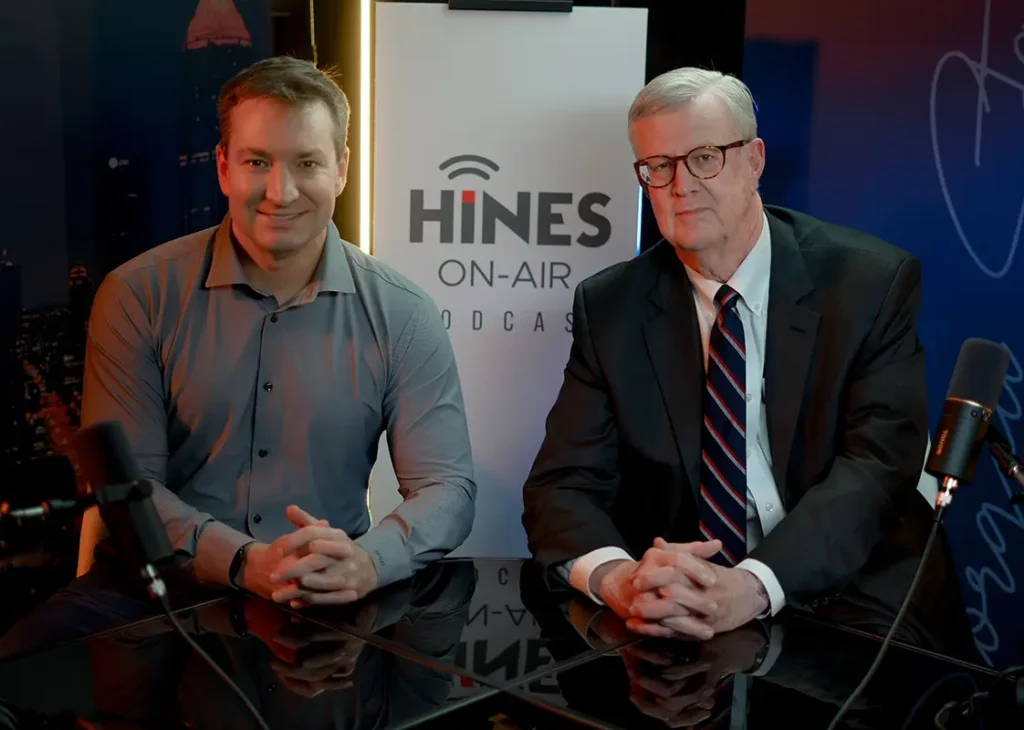
Join attorneys Matt and Frederick Mann to delve the stories behind guilty verdicts, the pursuit of justice, and the possibility of redemption. This episode offers a unique perspective on the criminal justice system, discussions on legal cases, and reflections on the human experience. Tune in to “Guilty Verdicts and Second Chances” for compelling insights into the world of law and justice. Subscribe now to stay updated on the latest episodes!
Hello everybody, we are back with another episode of Hines On Air. We have a special episode today, and I’ve been super excited about it. A personal hero of mine has joined us for the podcast, Mr. Frederick Mann. He has been practicing law for 47 years now, specializing in criminal defense. He has worked for both the federal and state governments on both sides of the courtroom. He knows everything and has some amazing experiences to share with us today. So, everyone, please welcome Mr. Frederick Mann.
Thank you, Matt. It’s a pleasure to be here.
How’s everything?
Good, doing well.
Great! I heard you recently went abroad to study. Can you tell us about that?
Sure, I spent the last five months of last year studying at a Dutch Law School in a program focused on comparative criminal law. It was an interesting program, taught in English, and I lived in the beautiful city of Leiden, which is the oldest Dutch university, like their Harvard. It was an honor to be there; I was the oldest student at the university and the only American attorney in the class. However, I decided to return earlier than planned because the coursework was quite theoretical, and I missed the practical side of law. Plus, I wanted to spend more time with my family, who lived nearby.
Let’s dive into some real-life criminal defense work. When you watch shows like CSI, they often get into intense analysis of evidence. How much of that is real? Specifically, how often do they use real fingerprints in a case?
Fingerprints are still used, but something interesting I learned in a recent murder case is that if you ask for fingerprint analysis first, you eliminate the possibility of getting DNA off the item. You need to ask for DNA analysis first, and then fingerprints afterward. This is something to consider, especially for our attorney listeners.
Have fingerprints ever played a crucial part in determining whether the defendant was present or guilty?
Yes, they have. For instance, in a case in Miami during the 80s, involving bombings and terrorism, fingerprints were crucial. The FBI found fingerprints on time bombs and other surfaces that had been wiped clean, like the bottom of a toilet seat. This evidence helped establish the presence of the defendant.
You worked on many high-profile cases in Miami. Can you share more about that time?
Miami in the 80s was a hub for various crimes, including drug trafficking. I handled cases involving massive quantities of cocaine being smuggled in by planes, boats, and even submarines. It was a cat-and-mouse game with law enforcement trying to intercept these shipments.
How did you catch these drug traffickers?
We had whistleblowers who worked in these operations and came forward. Their information, combined with diligent work by the FBI and other agencies, helped us catch these traffickers. For instance, one method involved dropping cocaine in waterproof compartments from planes, which were then picked up by speedboats guided by radio communication.
Did you have any run-ins with the Mafia during your time in Miami?
Miami was unique in that it was considered a neutral retirement zone for many Mafia members. They refrained from engaging in warfare there. Most of our focus was on drug cases, terrorism, and white-collar crimes.
Is there any case or defendant that stands out in your mind as exceptionally evil or particularly interesting?
Yes, one defendant I prosecuted was involved in armed robberies where victims were shot after being robbed. He was tried three times for different robberies. During one trial, he faked insanity, stripped naked, and urinated on his defense attorneys. He was a truly unsettling individual who enjoyed watching animals suffer and had a combined sentence of 1,197 years in state prison.
You’ve worked as a prosecutor putting people in jail, but now you’re on the defense side helping those charged with crimes. Can you share a bit about that transition?
I’ve worked in all roles in criminal law. I was a state and federal prosecutor for nine years, a public defender in Florida for almost 13 years, and for the remaining 25 years, I’ve been in private practice. My experience in various roles has given me a unique perspective on the justice system.
Congratulations on all your accomplishments, Frederick. Thank you for joining us today.
Thank you, Matt.
Thank you, everyone, for joining us on Hines On Air. If you’re not already following us, please subscribe to the podcast. We look forward to seeing you next time.


